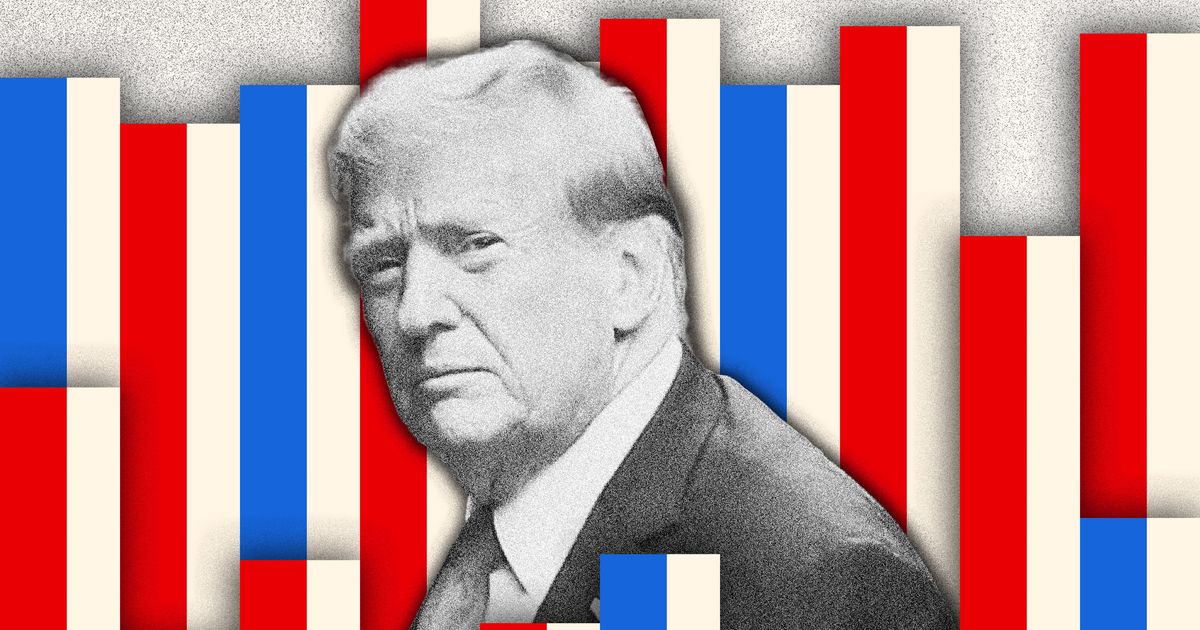Yommie
Elite Member
- Oct 2, 2013
- 64,174
- 37,187
- Country of Origin

- Country of Residence

Trump campaign says it will deploy thousands of election workers to monitor poll sites
The program underscores Trump’s fixation with election security, which he deployed in an effort to undermine results of the 2020 election.
Donald Trump has privately complained that his political apparatus was not adequately prepared for the legal battles in the 2020 election. | Jamie Kelter Davis for POLITICO
By ALEX ISENSTADT
04/19/2024 05:00 AM EDT
The initiative — which the Trump campaign and the Republican National Committee described as “the most extensive and monumental election integrity program in the nation’s history” — will include training poll watchers and workers as well as lawyers.
The program underscores Trump’s ongoing fixation with election security, which he deployed in an attempt to undermine the results of the 2020 election despite the widespread conclusion, even among Republican officials, that there was no widespread fraud.
Trump has warned supporters, without evidence, that Democrats could try to rig the 2024 election. Trump made the same false claims about the 2020 election, which he unsuccessfully tried to overturn.
Trump predicts a ‘bloodbath’ if he loses 2024 election
Share
Play Video
Trump has privately complained that his political apparatus was not adequately prepared for the legal battles in the 2020 election. He has made clear to advisers that he would like a more robust effort to be able to challenge election results as needed.
It’s also a sign that, should Trump once again attempt to overturn the election, he will already have in place tens of thousands of workers who could help with that effort.
In a statement, Trump said, “Having the right people to count the ballots is just as important as turning out voters on Election Day.”
According to the announcement, the Trump operation plans to deploy lawyers to monitor voter machine testing, early voting, election day voting, mail ballot processing and post-election canvassing, auditing and recounts. The campaign also plans to station lawyers at mail-in voting processing centers and set up a hotline that poll watchers and voters can use to report problems.
The RNC also stated that attorneys will be stationed at “every single target processing center where mail ballots are tabulated.”
Most states have rules regulating activities at polling sites. That includes laws prohibiting voter intimidation, obstructing voters from casting their ballots, loitering and advertising. According to the National Conference of State Legislatures, partisan poll workers are allowed to monitor elections but can’t interfere in the electoral process except to report issues.
Those involved in the drafting of the program included RNC Chair Michael Whatley, RNC co-chair Lara Trump, who is Trump’s daughter-in-law, and the RNC’s general counsel, Charlie Spies.
In a statement, Spies said, “In 2024 we’re going to beat the Democrats at their own game and the RNC legal team will be working tirelessly to ensure that elections officials follow the rules in administering elections. We will aggressively take them to court if they don’t follow rules or try to change them at the last minute.”
MOST READ
Trump spent the day listening to strangers insult him. And he couldn’t say a single thing back.
2 of Trump’s jurors are lawyers. Would they acquit on a technicality?
Jan. 6 lawsuits against Trump may advance despite criminal case, judge rules
The Grand Strategy Behind J.D. Vance’s Latest Push To Kill Ukraine Aid
Trump could have helped response to Jan. 6 riot — but didn’t — per new testimony
After the November 2020 election, Trump pressured government workers to overturn the election results and regularly spread false claims about voter fraud. On Jan. 6, a mob of Trump supporters stormed the Capitol in an attempt to stop the certification of the election. Trump is now facing federal and state charges centered on his attempt to hold onto power.
A Washington Post-University of Maryland poll released in January showed that one-third of Americans don’t accept that Biden legitimately won the 2020 election.
Trump has continued to stoke that false belief that the election was unfair, including installing Whatley, who echoed his false claims about the 2020 election, as RNC chair.
“We want a landslide that is too big to rig,” Trump said at a rally last month in Virginia.“That’s what we need because they’re going to be cheating, and they’re cheaters, and we’re going to be watching them, and we’re going to prosecute.”





